Empowering Human Connection in Rural Communities

If we want to serve rural populations, there is an effective way. Serve rural LGBTQ populations first because they are the most challenging. Then learn from the models and replicate them to serve others. Success would be that we see no more senseless death and suicides among the LGBTQ community.
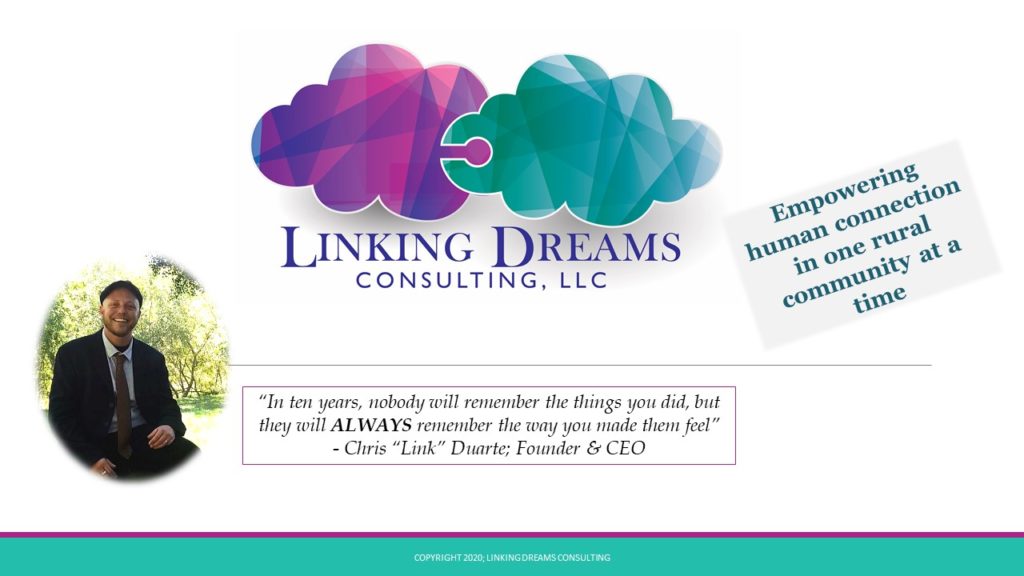
Linking Dreams Consulting was founded in 2016 to help organizations be inclusive, expand their programs, and support rural communities with connection to resources and support. Being a pioneer in rural communities felt impossible. As one person, I could not do it all on my own. With more than 350 emails a day, it was impossible to respond to all the need.
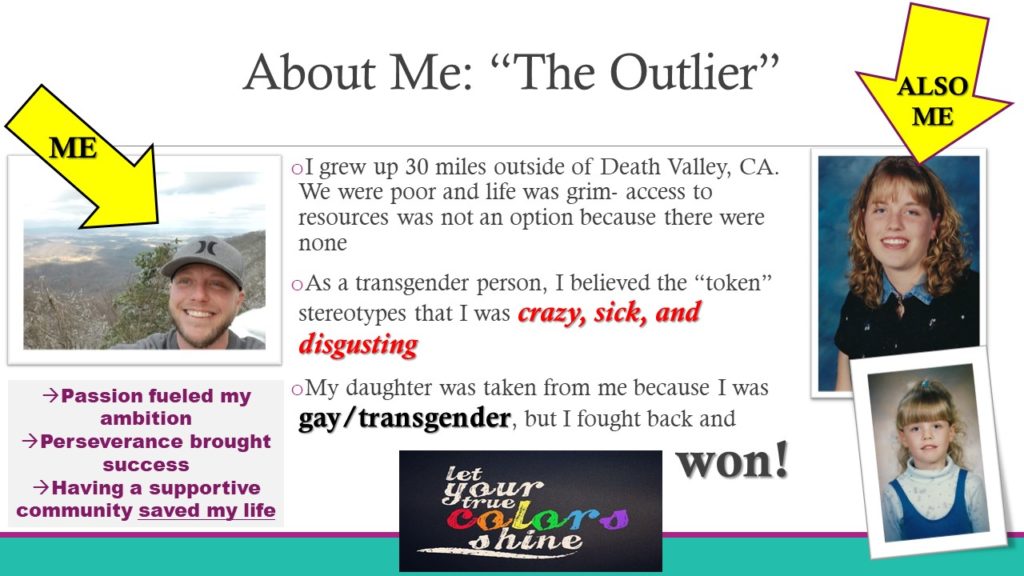
Because I grew up in a rural community, my passion was to give back. My life has been difficult. I grew up poor and was the first ever to go to college in my family. My family was very traditional conservative and my father, who only had a 7th grade education, never learned to read or write. From as early as I can remember, I just wanted to be somebody.
I was born female and didn’t transition until I was 26. It was not “acceptable to be transgender and there were very limited resources that were willing to support me. As a result, I have spent 8 years living in homelessness, have been fired from numerous jobs, and in rural communities, life was very dangerous for me. In 2004, my biological daughter was taken away from me. The judge told me, “no gay person has the right to raise a child.” The loss of my child fueled my passion to create change.
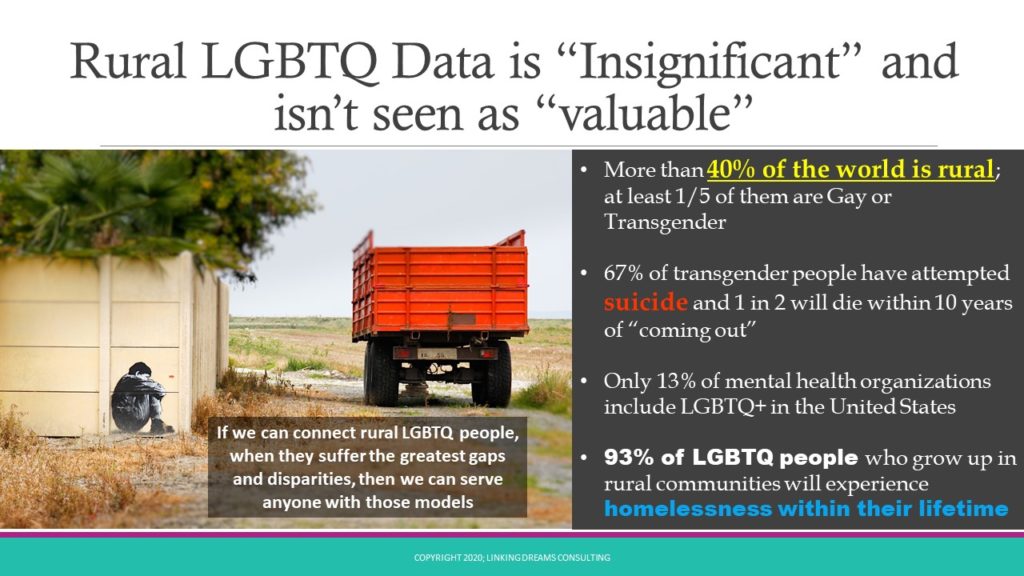
Over the next 5 years, I put myself through school, graduating top of my class, as the President’s Award Recipient; my university’s highest honor. After attempting to find help to get my child back, and finding none, I ended up being the resource I had always searched for. I was the first to transition openly in Northern AZ and after 5 years, I returned to the same court, in front of the same judge, and won full custody of my daughter. Although I had won, I found that others around me needed help too. There were limited services, virtually no support, and the people that did want to help, had no idea how.
During and after college, I was asked if I could provide training to organizations in my community to help them understand how to support the LGBTQ community better. As I did more and more trainings, I was then asked to create programs that would serve LGBTQ people in need. I found this work very rewarding but exhausting. I had now become the face of the community with no support as a professional to turn to. I sought out funding to support the work to help others and found very limited funding. Most organizations in rural communities exist in silos; their data was not “significant” enough to draw in dollars. Everything came down to the ability to collect, track and interpret data. I began to develop a special interest in how to make “data tell a story.”
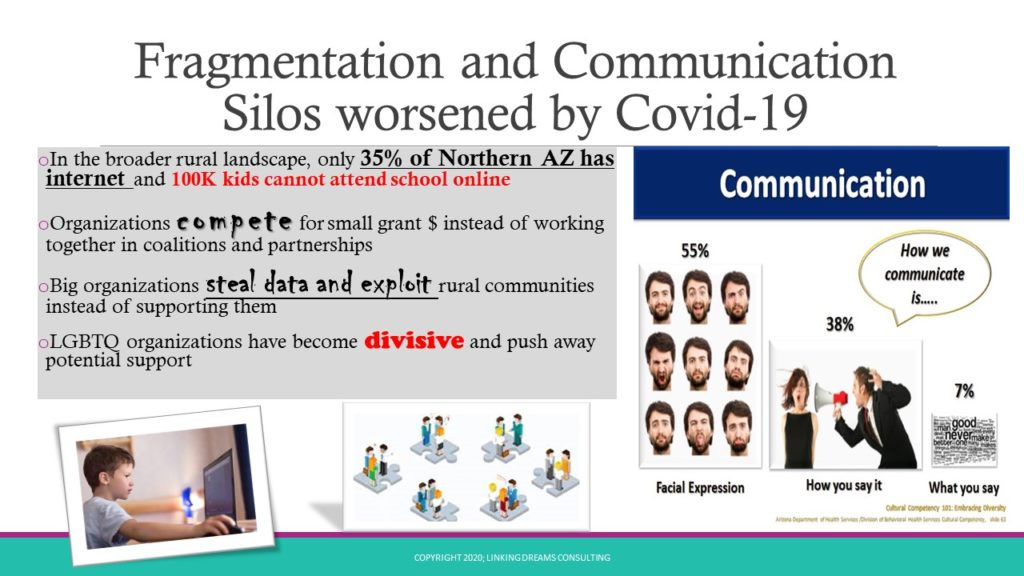
Over the next few years, I was able to draw in more than 5 million dollars to support the programs I led. This enabled me to partner with various organizations to share the work and support. Ultimately, I was leading data innovation before people around me could understand what this really meant. By 2012, I was asked to give interviews to the New York Times and USA Today and the University Program I created had ranked 14th out of 362 Universities across the United States. Everybody wanted to know: “How was I attracting so much support for rural LGBTQ communities.” My answer? “By created a critical mass of Allies who had loved ones that were LGBTQ and were empowered by my training and talks.”
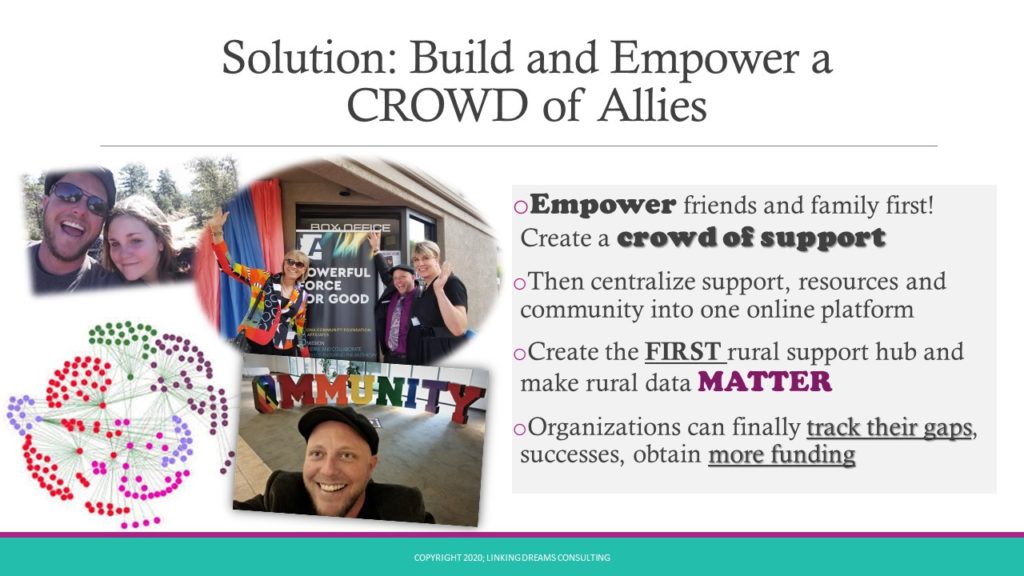
I came to Harvard to make rural community data matter. It’s not enough to just look at rural data. We have to attack the greatest problems first by engaging the most difficult to reach populations. LGBTQ people are afraid of having their data collected because they are afraid of how others might use that information. To reach this population, one has to understand how to build a crowd of support around them. I truly believe that if we can understand how to reduce gaps and disparities among rural LGBTQ populations, when they suffer the greatest gaps and disparities in existence, then its possible to serve anyone with these models.
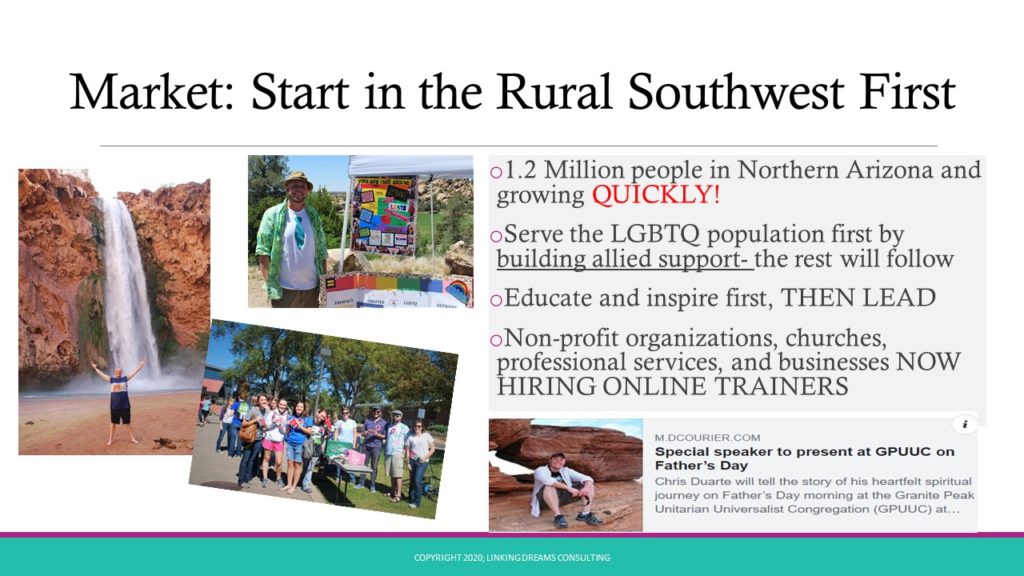
Before starting the HBAP program, I was getting hundreds of requests to speak all over the country. I was even spotlighted in a documentary; however, I couldn’t keep up with the demand. I decided that if I was ever going to be successful, I would need to focus on the program and learn how to lead this business effectively and sustainably.
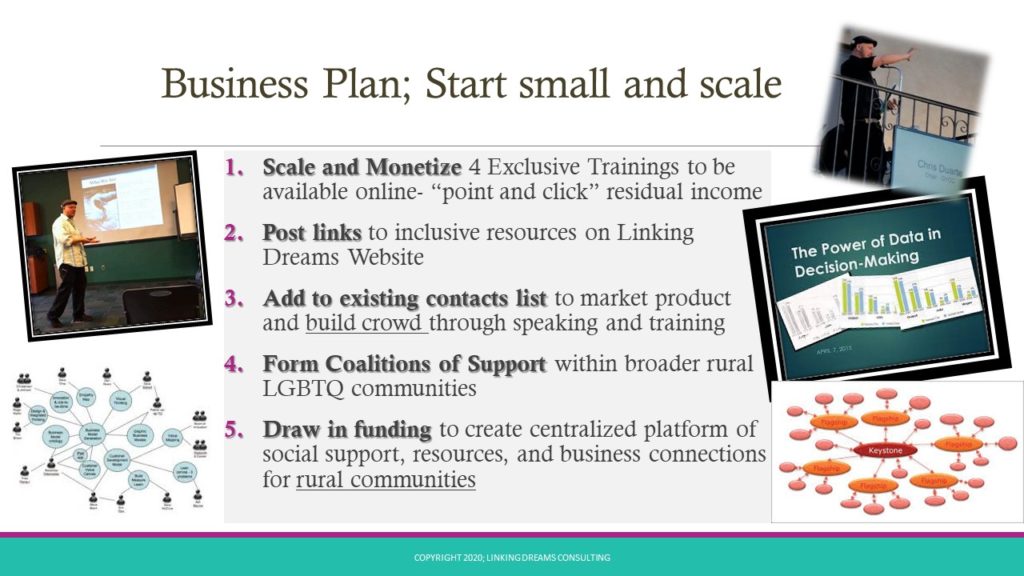
It appears that there is so much work to do, but most of the work has been done already. All I have to do is press send on the marketing email. Once I do this though, I am going to need to have a solid operations structure and a plan. It will take funding to get my training accredited and it will take some help from some of my friends in the HBAP program to make the ultimate goal happen: A centralized platform that contains social connection, resources, and support. A data hub that collects and interprets data to be used for funding so that organizations that serve can help with support.
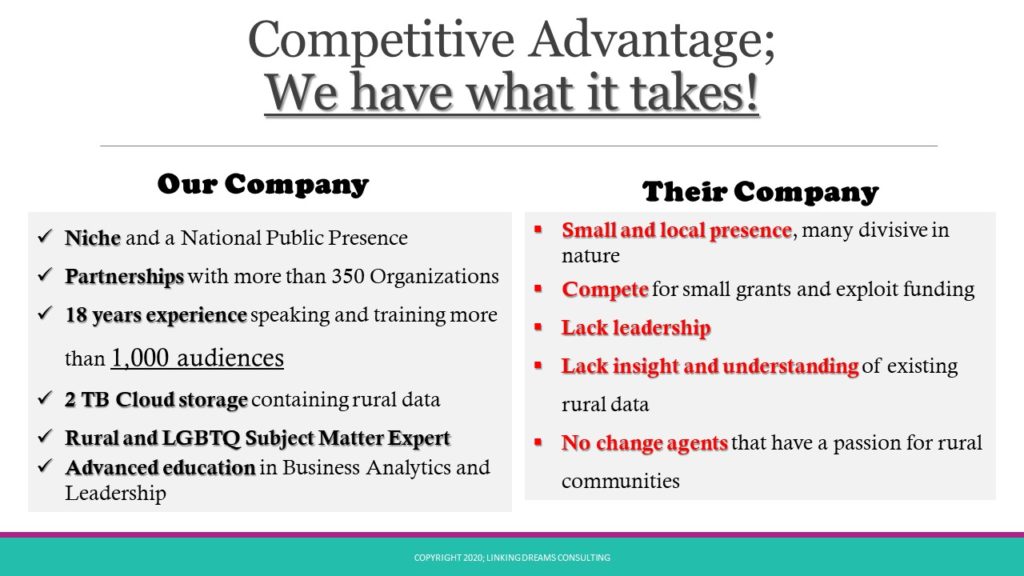
Our brand and our model stand out above the rest. Linking Dreams Consulting is not your average consulting firm. It has the opportunity to change the world by helping rural communities count and matter.
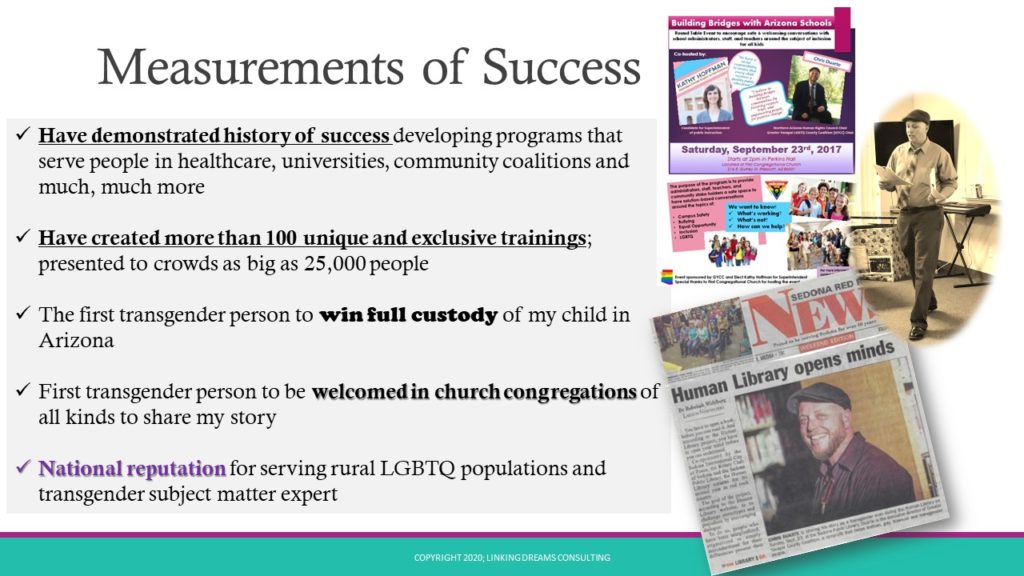
I don’t wonder if this business will be successful, I know it will. I have seen how this topic and my training impacts people. Through tears, laughter, and learning understanding, it is possible to create personal connection for rural communities. It is my mission, however, to do it for LGBTQ communities first.
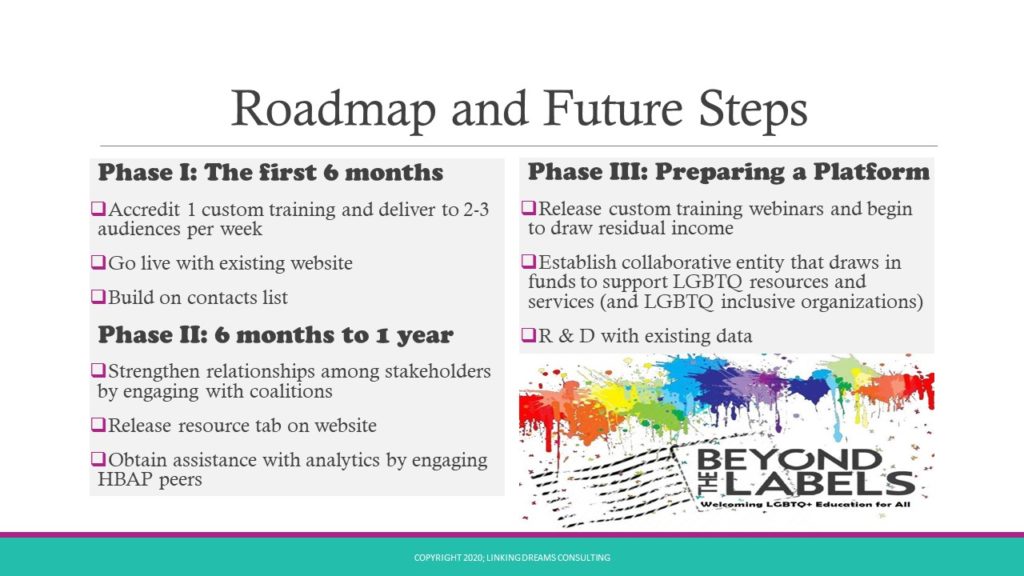
Investing in Linking Dreams means investing in lives. It means you have a desire to see rural lives count. It’s not enough to help just one person at a time. By empowering audiences, the support grows exponentially.
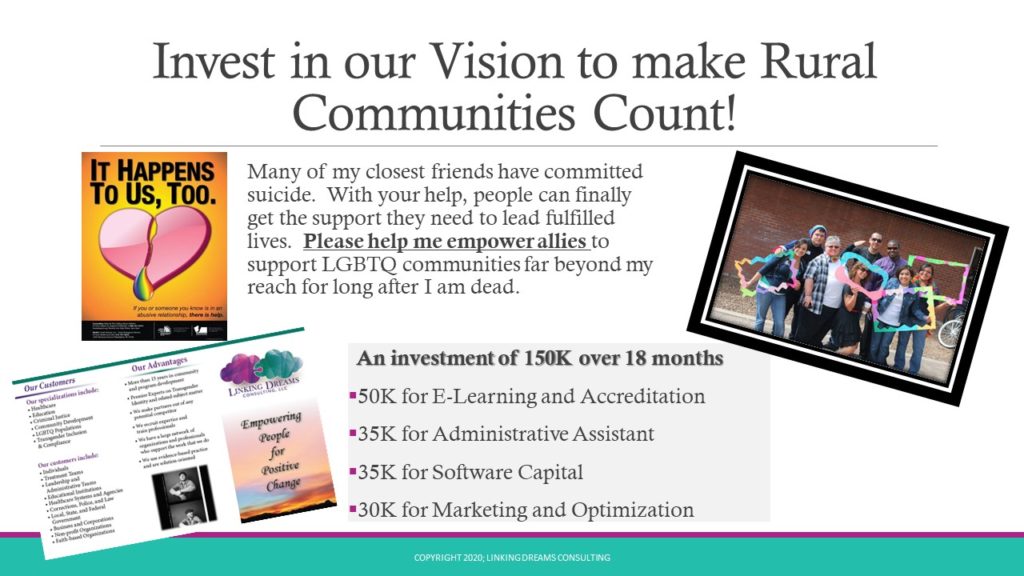
It’s not possible for me to put in 12 slides, everything you need to know about why this matters. I can only share with you that I wouldn’t be alive today if there weren’t allies, who aren’t LGBTQ, that loved and supported me along the way.
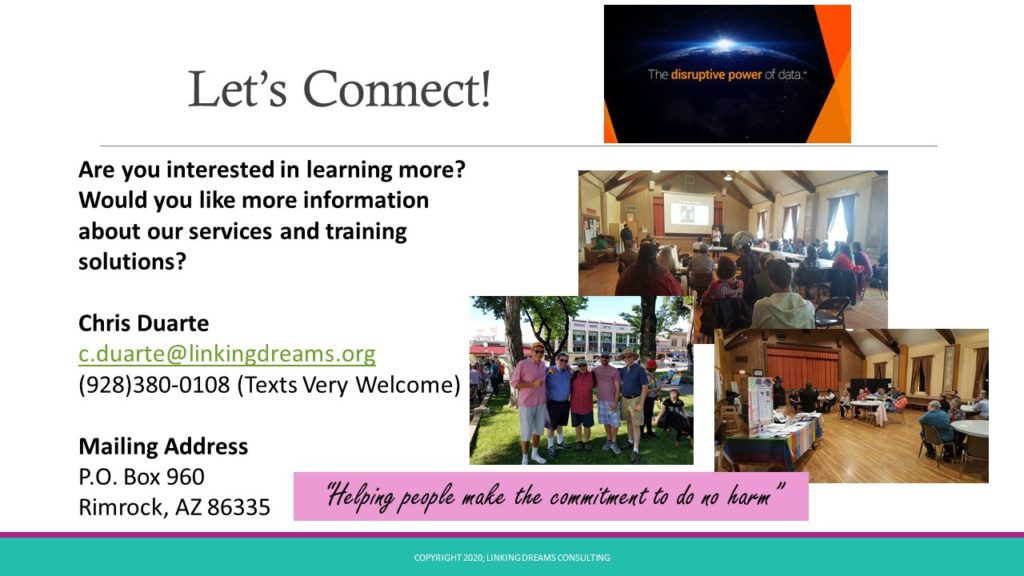


Link – Thanks for sharing your journey. I’m sure you will be successful in your endeavors.
Thank you Suresh 🙂
Link- Your story is inspirational. It is a message of resilience and the human experience. Important topic and love the targeted initial focus with a plan to build from those successes.
Thank you! And thank you for all your encouragement leading up to empower me to submit my pitch and story 🙂
Truly inspirational, Link!
Thank you 🙂
Thank you for sharing your experience, which is truly inspiring. And thank you even more for having the strength and vision to translate that experience into helping others. Bravo!